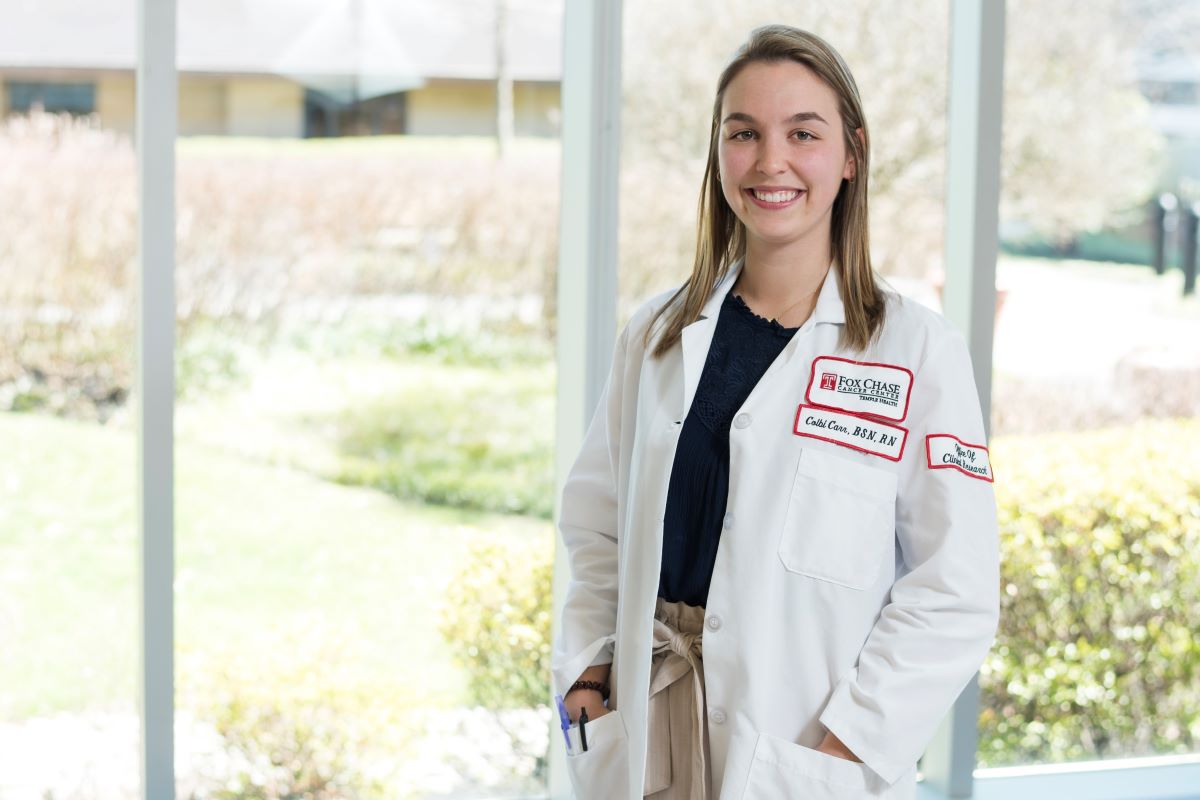
PHILADELPHIA (April 15, 2025) — Colbi Carr, BSN, RN, a nurse in the Clinical Research Thoracic Unit at Fox Chase Cancer Center, presented a study at the Oncology Nursing Society (ONS) Congress highlighting the importance of oncology clinical research rotations for undergraduate nursing programs.
The goal of a pilot program at Fox Chase is to give aspiring nurses the opportunity to shadow oncology clinical researchers as part of their education. These rotations help them develop knowledge and understanding of the clinical research specialty and how to seek out career opportunities after graduation.
“A big problem, and part of the reason we ended up initiating this study, is that nursing students don’t know much about clinical research. It’s not something that’s taught in school,” said Carr. “Consequently, when we had a student interested in shadowing, they really didn’t know much about the role.”
During the pilot program, a fourth-year baccalaureate nursing student from a local university worked with an oncology clinical research nurse for a 120-hour clinical rotation. The student interned in thoracic, women’s health, genitourinary, and gastrointestinal disease sites in Fox Chase’s Office of Clinical Research and ambulatory care clinic.
The experience included a review of treatment protocols, prescreening and consenting patients, participant enrollment, involvement in site-initiation visits, and observation of multidisciplinary tumor boards. Additionally, discussion with the program director regarding career paths and potential job opportunities within the clinical research department was provided.
In creating the pilot program, Carr said they learned that there are gaps in the understanding of patients undergoing treatment for cancer that created further challenges in educating the student about treatment plans, conducting research-focused assessments, and effectively communicating with other research personnel.
“Having identified some of these educational gaps, we want to expand this experience and offer it to more students. The student we had with us was able to work with the Office of Clinical Research leadership to create a program for students where they are able to shadow nurses in this particular area,” said Carr. “We are working to make it more structured and now have designated experiences and ways to evaluate the students going forward.”
In presenting the findings, Carr said she hopes to bring more attention to the role of the clinical research nurse and provide students with the necessary information to consider a career in clinical research.
“I think the first step in expanding this program is getting into the schools to educate students and make them aware of this opportunity. Students can’t be interested in oncology clinical research if they don’t know it’s a possibility to begin with,” she said.
Carr presented the findings in a poster presentation at the 50th Annual ONS Congress, which was held on April 9-13 in Denver.